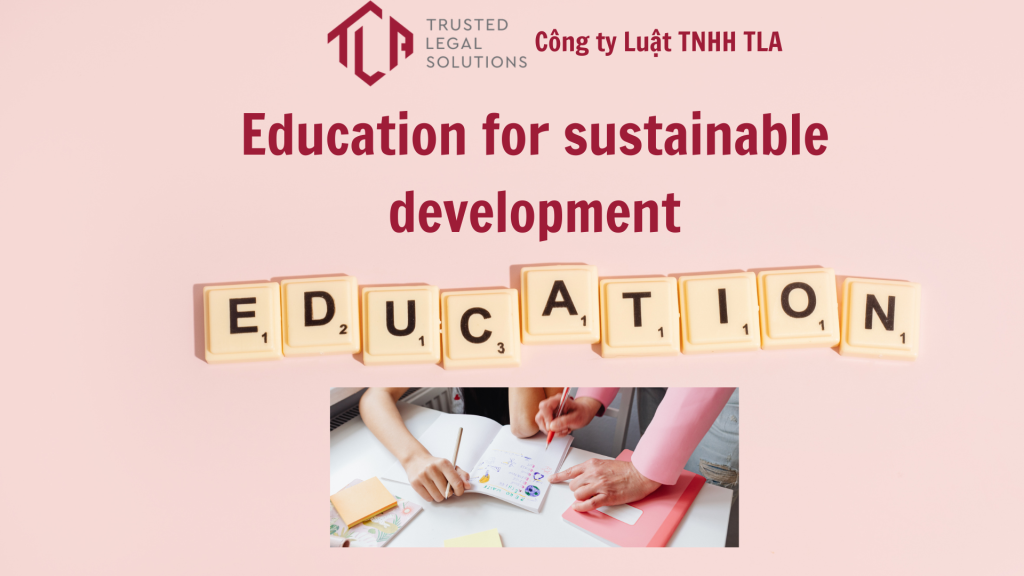Education for Sustainable Development (ESD) views education as key to achieving global development goals. It empowers individuals to make informed decisions and take collective action to address issues. Those problems include: climate change, resource overuse, inequality, improving both people’s well-being and the planet.
Definition
Education for Sustainable Development (ESD) is a lifelong learning process that empowers learners of all ages to acquire the knowledge, skills, and attitudes necessary to understand, explain, and address global challenges such as climate change, biodiversity loss, natural resource waste, and issues of inequality and discrimination.
In other words, ESD is an education that nurtures individuals who create a sustainable society.
ESD promotes learning that is:
- Cognitive: Enhancing critical thinking and understanding.
- Socio-emotional: Developing social skills, empathy, and emotional intelligence.
- Behavioral: Encouraging positive actions.

ESD is a transformative strategy that shapes what, how and where we learn. It is a lifelong process essential to quality education.
Several ways to implement ESD in education
There are various ways to implement ESD (Education for Sustainable Development). Some common approaches include:
- Integrating ESD into the curriculum at all levels of education, from preschool to higher education.
- Providing training on ESD for teachers and other educators.
- Creating ESD learning materials and resources.
- Supporting ESD initiatives in informal and non-formal learning environments.
These methods aim to ensure the philosophy of “lifelong learning” is reflected in the definition of ESD, where curricula at all educational levels incorporate sustainable development content, and can be learned through both formal and informal courses.
Challenges in implementing ESD
The effective implementation of Education for Sustainable Development (ESD) faces significant challenges, particularly in the context of teacher training and resource availability
- A lack of resources to train teachers capable of implementing Education for Sustainable Development (ESD)
- The approach of ESD requires many creative methods, emphasizing practice and learner engagement
- Traditional educational methods have become a barrier to meaningfully integrating ESD into the curriculum
- Global issues and sustainable development itself are complex, making it difficult for learners to study and apply sustainable development knowledge, which can lead to unforeseen consequences if the information is conveyed inaccurately.
In conclusion, Education for Sustainable Development (ESD) is essential for fostering informed and proactive individuals who can tackle global challenges effectively. By addressing the barriers to implementation and enhancing teacher training, we can ensure that ESD becomes an integral part of our society on the way to process sucessfully the sustainable development. If you have any other questions or need further assistance, contact with us.
Contact Our Lawyers for Consultation:
TLA Law Firm is one of the leading law firms, with a team of experienced lawyers and staff in areas such as criminal law, civil law, corporate law, and family law. If you have any questions regarding this matter, please contact us for prompt assistance.
- Lawyer Vu Thi Phuong Thanh, Director of TLA Law Firm, Hanoi Bar Association
Email: vtpthanh@tlalaw.vn - Lawyer Tran My Le, Chairman of the Member Council, TLA Law Firm, Hanoi Bar Association
Email: tmle@tlalaw.vn
Address: 7th Floor, 6 Duong Dinh Nghe Street, Yen Hoa, Cau Giay, Hanoi
Website: https://tlalaw.vn/
Hotline: 0906246464
My Doan

